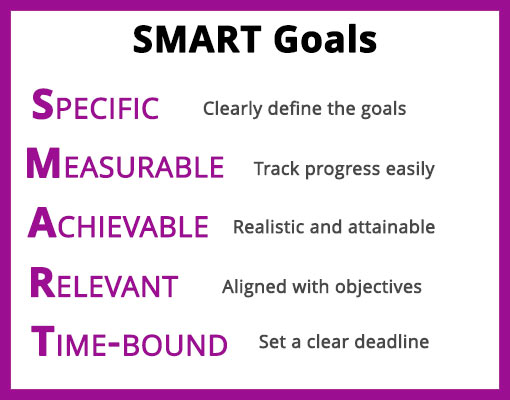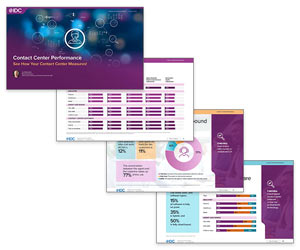In the fast-paced world of call centres, it’s easy for teams to become overwhelmed by the pressure of maintaining productivity and customer satisfaction.
To ensure your agents remain motivated, engaged, and focused on delivering exceptional service, setting SMART goals is crucial
Here are ten SMART goals we believe every call centre should be working towards to maintain a happy and productive workplace.
What is a SMART Call Centre Smart Goal?
A SMART goal is a framework used to guide the creation of clear, actionable, and attainable objectives. Each SMART goal is designed to be:
- Specific: The goal should be clear and unambiguous, outlining exactly what needs to be achieved.
- Measurable: It must include concrete criteria to track progress and determine when the goal is reached.
- Achievable: The goal should be realistic and attainable, given available resources and constraints.
- Relevant: The goal must align with broader business objectives, ensuring its importance and value.
- Time-Bound: A SMART goal should have a set timeframe or deadline for completion to create a sense of urgency.
This framework helps teams break down large objectives into manageable steps, ensuring that the pursuit of these goals remains focused and productive. When applied to a call centre, SMART goals can guide efforts to improve customer service, agent performance, and overall workplace morale.

10 SMART Goals For Call Centres
Here are ten SMART goals that every call centre should aim for to create a more positive environment and enhance both employee and customer satisfaction.
1. Use Metrics Based on Effectiveness not Efficiency
Many call centres focus heavily on efficiency metrics, like Average Handling Time (AHT), but this can sometimes prioritise speed over quality. While hitting AHT targets might look good on paper, it can result in poor-quality interactions, leading to customer frustration and costly call-backs.
If this sounds like you, maybe it’s time to shift the focus to effectiveness. Consider metrics like First Contact Resolution (FCR) instead of AHT. When agents resolve issues in one call, your customers are more satisfied, and your team feels more accomplished.
Example: If you are looking to reduce repeat calls in your contact centre, you could prioritise FCR over AHT.
2. Make Every Day Fun
Call centre work can become demanding and repetitive, leading to high levels of stress and burnout. To combat this, make work more enjoyable by introducing fun elements into the daily routine. This doesn’t have to be expensive or time-consuming.
Ideas:
- Celebrate birthdays with small office parties.
- Introduce weekly games like keyword bingo.
- Offer spot prizes for excellent customer service.
- Have a regular dress-down or themed dress-up day to add variety.
For more ideas on how to bring fun and laughter into your contact centre, read our article: 3 Ways to Have Fun in the Call Centre
3. Create Visible Opportunities for Agent Career Progression
The contact centre industry often suffers from high turnover rates due to a lack of clear career progression. To combat this, ensure that agents can see their potential career paths right from day one. Establish clear milestones and have regular check-ins to support their development.
If you’re a smaller business with limited promotion opportunities, offer skills-based training and certifications that help agents grow in their roles.
Whichever approach you take, taking an active interest in your agents’ personal development will help to nurture a happier and more engaged workforce.
Example: Implement visible career paths and offer training programs to reduce turnover.
4. Maintain a Clean and Comfortable Working Environment
The physical work environment plays a significant role in employee satisfaction and performance. Ensure that your call centre is equipped with comfortable furniture, clean facilities, and a pleasant atmosphere.
A well-maintained space can boost your agents’ mood, improving both performance and customer interactions.
Invest in ergonomic furniture and offer healthy snacks or a clean, well-stocked canteen to keep energy levels up. Small adjustments, such as better lighting or noise-cancelling headphones, can also make a big difference.
No agent will be giving their best if they are trying to balance on a broken chair, having just had a burnt jacket potato for lunch! Be smart. Happy employees = happy customers.
For more ways to make your contact centre a comfortable and pleasant place to work, read our article: 21 Ways to Make Your Contact Centre a Nicer Place to Work
5. Simplify your IVR for Everyone’s Benefit
An Interactive Voice Response (IVR) system should streamline interactions, helping customers reach the right agent and providing useful self-service options. However, a poorly designed IVR can frustrate customers and waste agents’ time.
Regularly audit and test your IVR system to ensure it’s intuitive and customer-friendly. Remove unnecessary steps and ensure it routes customers quickly to the correct department.
For more ideas on how you can enhance your IVR, read our article: Call Centre IVRs – How to Review and Improve Your IVR
6. Act on Customer Feedback
Collecting customer feedback is valuable, but acting on it is even more important. Too many call centres collect data and fail to make improvements based on what customers are saying.
Your customers are a valuable source of knowledge. They know what they want, what works, what doesn’t, and what your competitors are doing better!
Make it a priority to review feedback and take action. Whether it’s tweaking your call centre scripts, adjusting agent training, or improving your product offerings, always show customers that their feedback matters.
For more insights on how to better use customer feedback, read our article: Customer Service Feedback: How to Perfect Your Strategy
7. Empower your Agents to Deliver Excellent Customer Service
Micromanagement often leads to frustrated agents and poor customer experiences. Instead, empower your agents by giving them the autonomy to solve problems and make decisions.
Instead, empower your agents to handle customer issues and trust them to do the right thing.
- Train your agents on how to handle an escalating situation
- Encourage your agents to think for themselves and to ask for help only in extreme circumstances
- Allow them to issue refunds or send apologetic gifts without having to ask a supervisor’s permission
Your supervisors have better things to do than babysit your agents, and your customers could really do without being put on hold AGAIN while approval is granted for their refund.
8. Focus on Internal Communication as much as External Communication
Good communication within your team can directly impact the quality of service you provide to customers. Effective internal communication ensures that everyone is on the same page and can collaborate efficiently.
Encourage open communication through regular team meetings, collaborative platforms, or cross-departmental exchanges like “taster days” where agents experience different roles.
The more everyone communicates internally, the better, more consistent service you’ll deliver to your customers externally.
9. Keep Investing in the Best Technology you can Afford
In a Call Centre Helper survey, 67% of industry professionals named budget as a key barrier to running their dream contact centre.
While budgets can be tight, technology plays a crucial role in improving call centre operations. Invest in tools that will enhance agent performance and improve customer satisfaction.
Consider investing in advanced analytics, workforce management systems, or AI-powered chatbots that can handle routine inquiries. Prioritize technology that will yield the greatest ROI, even if it means upgrading in stages.
10. Stop Making Assumptions about your Agents’ Scheduling Preferences
“It’s the way we’ve always done it” and “No one will ever want to do that” are dangerous phrases in the call centre – especially when it comes to scheduling your agents.
Rather than assuming that your night or weekend shifts are undesirable and hesitantly assigning one per agent/per week, ask your team about their work/life balance and personal preferences.
You may be surprised to find that some of your agents would actually prefer to take on more night or weekend shifts, as it fits better around their studies or childcare arrangements.
You should also try to build more flexibility into your schedules to better accommodate your agents’ preferences. For example, consider introducing a shift that finishes at 2pm to help those who need to do the school run.
For more ideas for improving your call centre schedules, read our article: How to Avoid Schedule Dissatisfaction.
If you’re looking for more call centre goals and objectives, read these articles next:
- 20 Contact Centre Objectives
- 4 Key Objectives to Improve Productivity and Customer Experience
- 10 Employee-Focused Customer Service Goals
Author: Megan Jones
Reviewed by: Hannah Swankie
Published On: 27th Jan 2016 - Last modified: 4th Dec 2024
Read more about - Customer Service Strategy, Career, Communication, Customer Satisfaction (CSAT), Editor's Picks, Empowering Agents, Fun, IVR Solutions, Metrics, Scheduling




















“Our goal is to be a Trailblazer – As an outsourced Call Centre try to not only provide a first class service but to come up with new and exciting ways to update and inform our clients. The advancement in technology mean that it is not good enough to just do what you have always done- you have to experiment and innovate!”